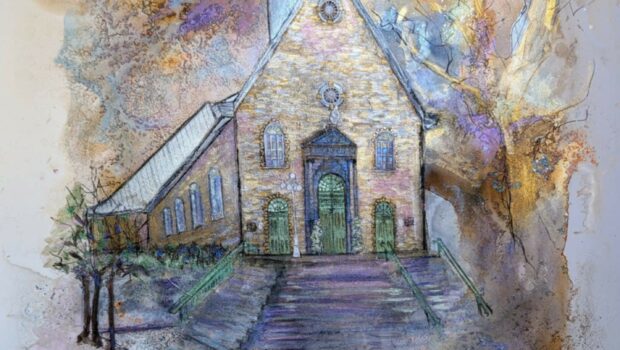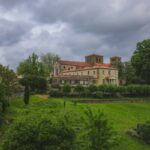Québécoise, Patriot, Poet, and Proletariat
The quaint towns of Boucherville, Varennes, Contrecoeur, and Sorel lie like sisters along the St. Lawrence River, connected by history, culture, and a shared spirit. These riverbank communities hold a timeless charm that continues to captivate visitors, much as they did over a century ago.
This article, originally titled Boucherville and written 125 years ago by the remarkable Québecoise writer Éva-Circé-Coté (under the pen name Colombine), remains a compelling tribute to one of my favorite summer retreats. Written in 1901, her prose is at once poetic, poignant, and sharply insightful.

Éva-Circé-Coté begins by inviting readers to discover these small towns as idyllic escapes from the bustle of Montreal, reachable then only by ferry or the Victoria Bridge—the lone crossing of the era. Today, the site of the Boucherville Yacht Club hosts spectacular fireworks each Québec National Day, echoing past celebrations.
But what starts as a leisurely invitation evolves into a stirring history lesson, honoring the sacrifices of the 1837–1838 Patriotes insurrection. History, like the river itself, flows in continuous cycles—an ebb and flow that Éva-Circé-Coté captures with enduring grace.
More than a century later, visitors can still experience what she described as “the vague small flaky mountains on the horizon standing out against the darker blue backdrop.” The area’s bird sanctuary invites guests to hear the songs of warblers, nightingales, and other native species, offering a serene natural retreat.
Today, Boulevard Marie-Victorin separates the shoreline from L’Église de la Sainte-Famille, but on a Sunday, one can still hear the resonant bells she described as “la cloche jette dans l’air ses ding din don retentissant.”


Her complex relationship with the church is evident—she never names it directly, hinting at a deeper bitterness. This tension comes to the fore in her recounting of Pierre-Amable Boucher, the last in a line of seigneurs bearing the family name. Unlike his ancestors, who rest in the church crypt, Boucher’s ashes were reportedly laid to rest elsewhere—likely a consequence of his involvement in the Patriotes uprising.
Éva-Circé-Coté was deeply immersed in this history, having researched the events for a play she authored, Hindelang et De Lorimier, which dramatized the lives of Patriote leaders executed in 1839. Her portrayal of Boucher and his compatriots speaks to a passionate commitment to justice and memory.
She poignantly describes Boucher’s grave marker, inscribed with the date 1852—a curious detail since he died in 1857. This may be a metaphorical reference to a 1852 effort to honor the ashes of Patriotes collectively, adding layers to the story she weaves.
Beyond patriotism, Éva-Circé-Coté was a fierce advocate for the French language and a social reformer whose ideals paralleled those of American feminist and labor activist Voltairine de Cleyre. Both women, though never acquainted, shared a commitment to women’s rights and workers’ welfare—issues central to Éva-Circé-Coté’s life and work.
She also championed the legacy of Québecois poets Octave Crémazie and Émile Nelligan, preserving their cultural contributions with the same fervor she gave to political causes.
Her life and work defy easy summary; biographer Andrée Lévesque devoted nearly 500 pages to her story. What remains unmistakable is that through Éva-Circé-Coté’s words, the past continues to speak, inviting reflection on Québec’s rich cultural and political heritage.
References:
- Colombine, Boucherville, Bleu, blanc, rouge : poésies, paysages, causeries, Montreal, 1903
- Lévesque, Andrée, Éva Circé-Coté, Libre-Penseuse 1871-1949, Montréal, Les éditions du remue-ménage, 2017
- David, Laurent-Olivier, Les Patriotes de 1837-1838, Montréal, 1884





















Very Informative Article And also Very Easy to understand. i hope you will keep posting this type of article. THANK…